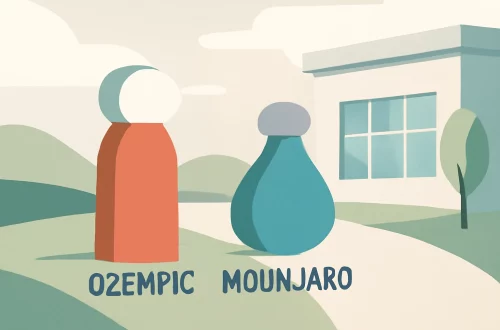
How to Sell Your Placenta: A Comprehensive Guide for New Parents
The journey into parenthood is often filled with various experiences, from the first heartbeat during an ultrasound to the moment parents hold their newborn for the first time. Among the many aspects of childbirth, the placenta is an organ that garners attention for its unique role in pregnancy. This fascinating structure not only nourishes the developing fetus but also raises questions about its potential uses after birth. As awareness about the placenta’s benefits grows, many new parents are exploring different options regarding this organ post-delivery.
The interest in placental encapsulation, donation, and even selling has become a topic of discussion for many families. There’s an emerging market where parents can choose to sell their placenta for various purposes, including research, cosmetics, and even dietary supplements. Understanding the intricacies of this process can empower new parents to make informed decisions regarding their placental experience.
In addition to the financial aspects, this journey also touches on emotional and cultural dimensions. Each family’s choice is influenced by personal beliefs and health considerations. As the conversation surrounding placental practices continues to evolve, it is essential for new parents to navigate this landscape with knowledge and confidence.
Understanding the Placenta: What It Is and Its Functions
The placenta is a remarkable organ that forms during pregnancy, serving as a lifeline between the mother and her developing baby. It is responsible for providing essential nutrients and oxygen to the fetus while also removing waste products. The placenta develops in the uterus and attaches to the wall, forming a connection through the umbilical cord. This connection is critical for the fetus’s growth and development, making the placenta an essential component of a healthy pregnancy.
Beyond its role in fetal development, the placenta also plays a significant role in the mother’s body. It produces various hormones that help maintain pregnancy and prepare the body for childbirth. For instance, hormones such as human chorionic gonadotropin (hCG) and progesterone are vital for sustaining the pregnancy and ensuring the mother’s body adapts to the changes occurring during this period.
After childbirth, the placenta is expelled from the mother’s body, marking the end of its crucial role. However, it doesn’t simply become medical waste. Increasingly, people are recognizing the potential uses of the placenta, leading to discussions about its sale and donation. Understanding the benefits and the science behind the placenta can help parents appreciate its value beyond the immediate postpartum period.
For many, the question arises: what to do with the placenta after birth? Some choose to encapsulate it for consumption, believing it may offer health benefits such as increased energy and enhanced postpartum recovery. Others might consider donation to medical research or even cosmetic companies that utilize placental cells in their products. This emerging trend has sparked a broader conversation about the ethical implications and potential benefits of utilizing the placenta.
In summary, the placenta is not only a vital organ for fetal development, but it also has potential uses that can benefit new parents. By understanding its functions and exploring the options available for its use after birth, parents can make informed decisions that align with their beliefs and values.
Exploring the Market: How to Sell Your Placenta
As interest in placental products grows, the market for selling placentas has also expanded. If you find yourself considering selling your placenta, it’s crucial to understand the various pathways and what they entail. The process can vary depending on location, regulations, and the specific companies involved.
Firstly, research is key. Not all companies involved in placental services are created equal. Some may specialize in encapsulation, where the placenta is dehydrated, ground, and placed into capsules for consumption. Others might focus on donation for medical research or cosmetic use. Understanding the differences between these services will help you determine which option aligns with your intentions and values.
Before selling your placenta, it’s advisable to reach out to the hospitals or birthing centers in your area to inquire about their policies. Some facilities have strict regulations regarding the handling of biological materials, including placentas. It’s essential to know whether you need to make arrangements in advance to ensure that your placenta can be collected and sold legally.
Once you’ve gathered the necessary information, consider reaching out to reputable companies that specialize in placental services. Look for organizations that prioritize safety, have clear ethical guidelines, and offer transparency regarding their processes. Read reviews and testimonials from other parents who have sold their placentas to ensure you are making a well-informed choice.
Additionally, be prepared for potential paperwork and consent forms. Many companies will require you to sign documents that outline how your placenta will be used and ensure that all procedures comply with local regulations. Understanding your rights and the implications of selling your placenta is crucial for a smooth transaction.
Ultimately, selling your placenta can be a way to contribute to scientific research or gain some financial benefit. However, it’s essential to approach the process with caution and awareness, ensuring that you are comfortable with the choices you make.
The Ethical and Cultural Considerations of Selling Your Placenta
The decision to sell your placenta is not solely based on financial considerations; it also involves a range of ethical and cultural factors. Various cultures around the world have different beliefs and practices surrounding the placenta, and these can influence personal choices significantly.
In some cultures, the placenta is viewed as a sacred part of the childbirth experience. For example, certain Indigenous communities may have rituals that honor the placenta, treating it with respect and care. In these contexts, the placenta is often buried or otherwise returned to the earth as a way to honor the connection between mother and child. For parents from these backgrounds, selling the placenta may not align with their cultural values.
Conversely, many modern parents view the placenta as a resource that can provide benefits beyond childbirth. The rise of placental encapsulation highlights a growing trend where parents seek to reclaim the benefits of the placenta through consumption. This approach is often rooted in the desire for improved postpartum recovery and overall well-being. For these individuals, selling the placenta can seem like a practical and beneficial choice.
Ethical considerations also come into play when discussing the sale of placentas. Questions about consent, commodification, and the potential exploitation of vulnerable populations can arise. It’s crucial for parents to consider the broader implications of their choices and to engage with companies that prioritize ethical practices.
Moreover, transparency in how the placenta will be used is vital. When selling your placenta, ensure that you are fully informed about its potential applications and that you feel comfortable with them. Engaging in open conversations with your partner and community about these choices can also provide additional perspectives and support.
Ultimately, the decision to sell your placenta is deeply personal, influenced by a multitude of factors, including ethical beliefs, cultural practices, and personal values. By reflecting on these aspects, new parents can navigate this decision with greater clarity and confidence.
Health Considerations and Postpartum Recovery
As new parents navigate the complexities of postpartum recovery, many are interested in the potential health benefits of consuming their placenta. While some advocates claim various advantages, it’s crucial to approach these assertions with a critical mindset and rely on scientific evidence.
Proponents of placental encapsulation often suggest that consuming the placenta can help alleviate postpartum depression, increase energy levels, and improve milk production. However, scientific research on these claims is limited. While some small studies indicate that placenta consumption may provide certain benefits, more extensive research is needed to draw definitive conclusions.
It’s essential for parents to consider their own health conditions before deciding to consume their placenta. Individuals with certain medical issues or infections may pose risks to themselves or their newborns if they choose to consume the placenta. Consulting with healthcare professionals before making this decision is crucial to ensure safety.
Additionally, the method of preparation can significantly impact the safety and potential benefits of placental consumption. Proper handling and preparation are necessary to reduce the risk of contamination and ensure that the placenta is safe for ingestion. If you choose to encapsulate your placenta, seek out reputable services that adhere to strict health and safety guidelines.
While the idea of consuming the placenta may resonate with some, it’s essential to balance personal beliefs with medical advice. Ultimately, every parent’s experience is unique, and what works for one may not work for another. Therefore, education and open dialogue about postpartum recovery and health considerations should guide your choices.
In conclusion, whether you decide to sell, donate, or consume your placenta, it’s vital to approach the topic with informed awareness. Each option has its implications, and understanding these can help new parents navigate this aspect of their childbirth experience with confidence.
**Disclaimer:** This article is for informational purposes only and does not constitute medical advice. Please consult a qualified healthcare professional regarding any health concerns or conditions.




